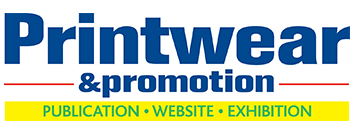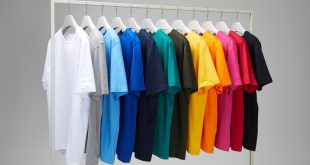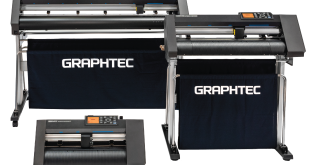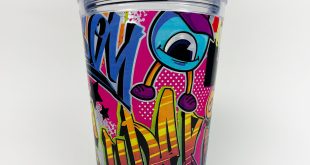
This year sees A. Adkins & Sons mark its 100th anniversary. P&P editor Melanie Attlesey spoke with Marie McMahon, general manager, Paul Marks, product manager, and Robin Carter-Browne, sales consultant, to find out more about the company’s past, present and future.
There aren’t many businesses in the garment decoration industry that can lay claim to a century of innovation and experience, but Adkins is one company that rightly can.
Founded in 1918, Adkins started life manufacturing larger format machines for the shoe and hosiery trades. The focus of the company changed in the 1980s when it was purchased by the current owner Roy England.
“When Roy took the company over he decided that there was a niche market that Adkins could get into for garment decoration. Back in those days the industry wasn’t as prolific as it is now. Roy changed the face of Adkins,” explains Marie.

Quality heat presses
Now the company has become renowned for building quality heat presses, the kind that means some garment decorators are still using ones that they purchased 20 to 30 years ago.
Adkins’ products fit neatly into five ranges; Beta, Studio, Omega, Alpha and an entry-level range available through Heat Presses Direct, which is ideal for hobbyists or start-up businesses.
The Beta range is comprised of Adkins’ core products and was introduced to the market around 25 years ago. “The Beta Maxi has been our workhorse for many, many years. In the Beta range we go from a pocket press through to a cap press right up to a pneumatic called the Major,” says Paul.
The Studio is the next range down from the Beta and has been in Adkins’ portfolio for around 10 years. The presses available through Heat Presses Direct have all been brought in from China, but have undergone rigorous quality checks to ensure they meet Adkins’ high standards.
“Every single press, before they leave our workshop in the UK, gets put on a bench and is checked from top to tail to ensure they meet safety standards. People buy from us because it eliminates any element of risk. They can buy with confidence,” explains Robin.
New markets and customers
It’s this attention to detail and quality which means when customers purchase a heat press from Adkins the product is unlikely to need replacing for many years. On the outset this may not seem like a very good business plan, as you have to keep seeking out new markets and customers, but for Adkins it is a totally different story as the company experiences year on year growth.
However, Adkins has made the move into a new market and with great success. Earlier this year, it launched its own brand of dye sublimation inks called SubliSure.
These inks have been two years in development, with the SubliSure paper created in collaboration with German manufacturer Felix Schoeller.

Paul says: “Our presses are being used so widely in sublimation it was a natural progression for us to move into the ink market. So far the launch of the SubliSure range has been very successful. We carry a full range of cartridges for all major sublimation machines. Prior to the European launch at FESPA, we had been selling the inks for about a year, but we wanted to make sure the product was absolutely bomb proof before we introduced it fully to the market. It had to work every time, first time.”
“Yes, that’s right,” agrees Robin. “We couldn’t risk the name of Adkins being associated with a failure.”
Paul adds: “I’ve worked with sublimation inks for quite a few years and the inks in the SubliSure range are one of the most stable and consistent I have ever come across and I come from an end-user background.”
The acquisition of Isub Education last year instantly gave the company access to around 500 schools. Upon introducing the SubliSure range to the schools, Robin estimates that around 98% of them converted over from alternative inks. “We are around 15% cheaper than other brands and much better quality,” he says.
“With a lot of other ink brands you have to flush your machine out and introduce new inks. Schools can’t afford to do that,” says Paul. “With our inks, if your cyan runs out you can just take it out, replace it with a new cartridge, alongside the other cartridges. And if you change over to the SubliSure range, you won’t notice any difference in colour as colour metrically we match all of the ICC colour profiles and you get perfect results.”
Moving into wide format
Adkins also has its eye on another market. During the next 12 months Adkins is looking to actively target the wide format market. “We’ve got the machines to service this market,” says Paul.
Adkins’ widest calendar press is 2m, with another two measuring 1.7m and 1.2m. Its largest flatbed press is the Series 10 and measures 1.5×2.5m, which would easily fit a 4ft sheet.
“When you see these machines, they are beasts,” continues Paul. “It’s a market we have been dabbling in for a while, but now we are actively going to target this market.”
Marie adds: “I can see us selling more large format presses in the near future, not because they are being used in high-volume factory environments, but because decorators are using them for a wider range of products, rather than a standard T shirt.”
The cost of Adkins’ calendar presses places them within the realm of accessibility for start-up businesses. “The 1.2m calendar is now sub £10,000 and when this is matched with an entry-level printer, you can be in production for less than £25,000. Whereas many years ago that would have been £30,000, £40,000 or even £50,000,” says Paul.
With these machines now within reach for many start-up businesses, this in turn fuels the local economy. Start-up businesses are likely to target local clubs, schools and associations, which also helps them to raise their own profile. As these businesses grow, they then in turn outgrow their 1.2m press and upgrade to a 1.7m press, move out of their garage and into their own unit. It’s the circle of life. Adkins hopes to target more of these cottage industries in the near future with their calendar presses.
And speaking of the future, Adkins has a machine in development at the moment which looks to bring the popular workhorse Beta Maxi into the 21st century. The press will be known as the Beta Super Maxi and has been developed as Robin says: “purely because people have told us it’s a lovely machine, very reliable, but not very sexy.”
All three were keeping quiet about when this product would enter the market, but were keen to stress it was going to change the face of the Beta Maxi which hasn’t changed a lot in 25 years.
With heritage and quality in spades, Adkins is sure to still be here in 2118 celebrating its 200th anniversary – long out living the best of us.
 Printwear & Promotion The Total Promotional Package
Printwear & Promotion The Total Promotional Package




